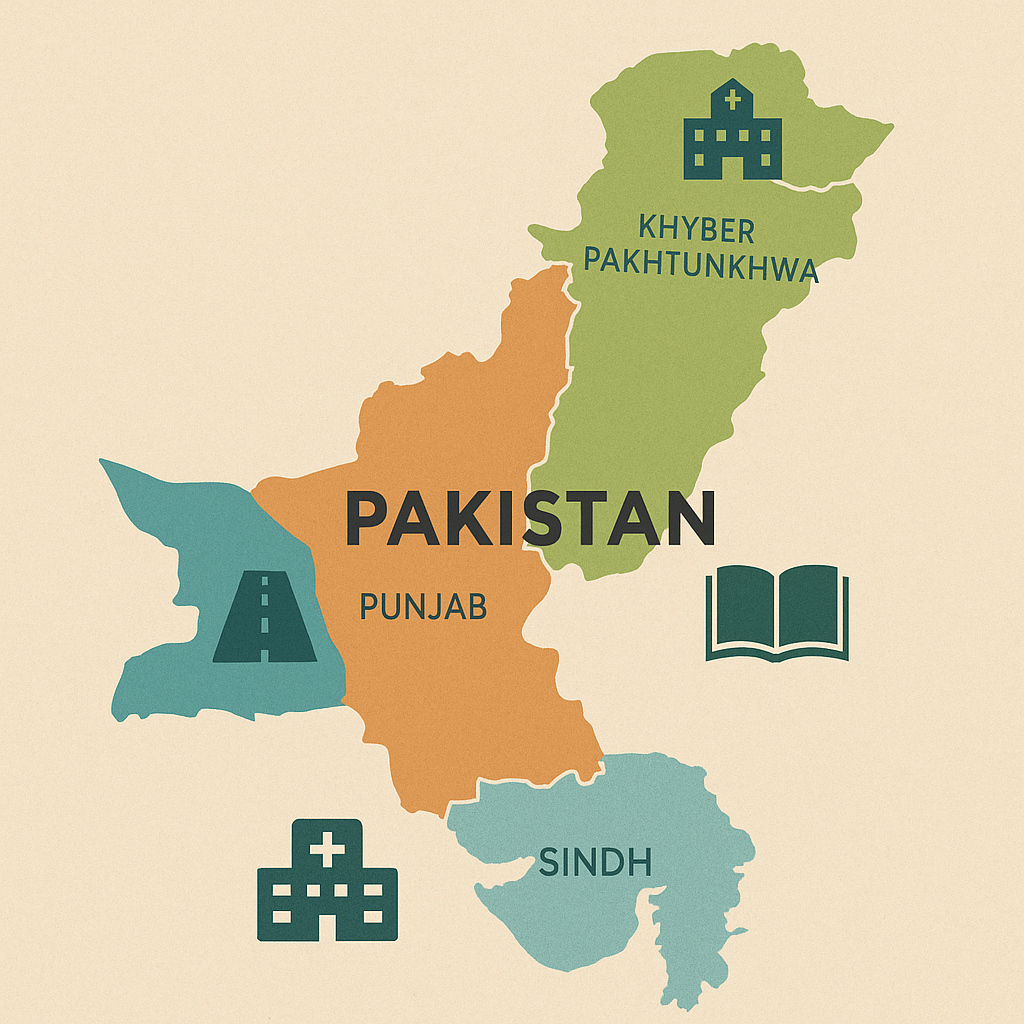Bridging Divides: How Pakistan Can Ensure Equitable Resource Distribution by 2025
Learn how Pakistan can achieve national unity through equitable resource distribution among its ethnic regions and address historical injustices by 2025.
Why Equitable Resource Distribution in Pakistan Matters
Pakistan is a country of diverse ethnic, linguistic, and cultural identities spread across its provinces. Yet, this richness has long been overshadowed by regional disparities and historical grievances. The uneven distribution of resources has led to underdevelopment in several regions, particularly Balochistan, Gilgit-Baltistan, southern Punjab, and parts of Sindh and Khyber Pakhtunkhwa.
To promote national unity and long-term stability, Pakistan must prioritize equitable resource distribution as a national development strategy. This involves moving beyond population-based formulas and addressing the structural inequalities that have held back entire regions for decades.
Causes of Regional Inequality in Pakistan
Several key factors contribute to regional inequality in Pakistan:
- Over-centralized planning and weak provincial autonomy
- Political favoritism in federal fund allocations
- Neglect of remote and low-population areas like Balochistan and GB
- Underrepresentation of minority ethnic groups in policymaking
- Unequal access to education, healthcare, and infrastructure
These challenges not only create socio-economic gaps but also fuel discontent and alienation. Without corrective measures, Pakistan risks deepening internal divides.
Reforms for Equitable Development in Pakistan
1. Reform the NFC Award Formula
The National Finance Commission (NFC) Award currently favors population as the primary metric. This must be revised to include other indicators like:
- Poverty rate
- Development needs
- Literacy and health indicators
- Geographic size and remoteness
This shift will ensure that underdeveloped regions get a fairer share of federal resources and are not punished for having smaller populations.
2. Strengthen Local Governments
Empowering local government bodies is critical for addressing grassroots development. Provincial governments must:
- Conduct regular local body elections
- Allocate sufficient funds to municipal governments
- Reduce bureaucratic delays in project approvals
When local leaders are given real authority and resources, development becomes more targeted, transparent, and inclusive.
3. Create a National Development Equity Commission
Pakistan needs a federal commission to monitor equity in public spending and development. This independent body can:
- Track regional development indicators
- Advise on equitable fund allocation
- Publish annual reports on development disparities
- Engage civil society in oversight
Such a body would increase transparency and ensure that development is needs-based, not politically motivated.
4. Prioritize Underserved Regions for Infrastructure Investment
Remote and disadvantaged areas must be first in line for public infrastructure projects, including:
- Roads and transportation
- Schools and vocational centers
- Hospitals and basic health units
- Clean water and sanitation projects
- Internet and mobile connectivity
This kind of targeted investment can close long-standing gaps and open up economic opportunities for marginalized communities.
5. Ensure Ethnic and Regional Representation in Institutions
National inclusion begins with representation. The federal government must:
- Ensure fair quotas for underrepresented provinces in civil services
- Promote regional languages and cultures in national media
- Establish universities and think tanks in remote provinces
- Appoint diverse voices to key national policy positions
A diverse and inclusive state machinery increases legitimacy and trust.
The Role of Data and Technology in Resource Allocation
Equity must be data-driven. Tools like:
- GIS mapping
- District-level development indices
- Real-time monitoring dashboards
- AI-based budget tracking
…can help policymakers visualize regional disparities and allocate resources accordingly.
A digital governance model with open data portals can also allow citizens to track public spending, promoting transparency and accountability.
Overcoming Political Resistance and Building National Consensus
Equity threatens entrenched interests. Those benefiting from the current system may resist reform. To move forward, Pakistan needs:
- Political will at the federal and provincial level
- Media advocacy to raise awareness of regional inequality
- Civil society pressure to ensure follow-through on policy reforms
- Cross-party consensus to keep reforms out of partisan conflict
Equity should not be a favor — it must be treated as a constitutional obligation and development priority.
Shared Prosperity Is National Prosperity
Equitable development is more than a policy — it’s a nation-building strategy. When all provinces receive a fair share of development, the entire country benefits. Reduced resentment, greater stability, and higher productivity follow.
For Pakistan to rise as a modern state, it must ensure that no region or community is left behind. Addressing historical grievances through fair and transparent policies is not just moral — it is essential to long-term peace and economic growth.
Conclusion
As Pakistan moves forward in the 21st century, the focus must shift from political favoritism and reactive governance to justice-based policy. The goal is not to weaken strong regions but to uplift weaker ones.
By reforming the NFC Award, strengthening local governments, investing in underserved regions, and using technology and data, Pakistan can finally begin to heal its historical wounds.
Equitable resource distribution is not a cost — it’s an investment in national unity and future prosperity.
